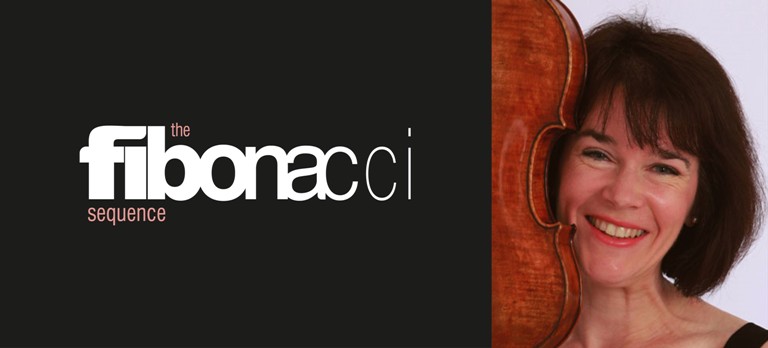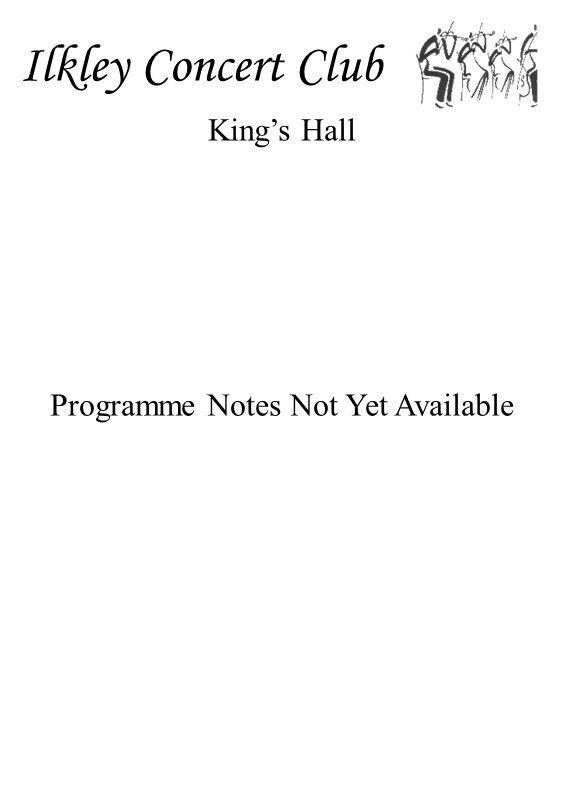REVIEWS
FIBONACCI SEQUENCE – string & wind octet

Wednesday 8th May 2013
Richard Strauss – Till Eulenspiegel – einmal anders! (another way!) arr. Hasenohrl
Arthur Butterworth – Romanza for horn & string quartet op. 12
Weber – Andante and Rondo Ungarese op. 35
Schubert – Octet in F D803
Now in its eighteenth year, the Fibonacci Sequence is one of the UK's most distinguished chamber ensembles with a wide-ranging discography and impressive reviews. The ensemble members appear regularly at the world's leading festivals and venues. They are led by Gina McCormack (first violinist of the Sorrel Quartet for 13 years). They start with Hasenöhrl's astonishing arrangement of Strauss's famous tone poem – for just five players! Local composer Arthur Butterworth's Romanza, with its exquisite horn solos, was written in 1951. Weber's piece, written at the request of the bassoonist of the Munich Orchestra, is a set of variations followed by a Rondo with a Hungarian flavour. The concert ends with Schubert's much-loved Octet for string quartet, bass, clarinet, bassoon & horn. What a wonderful end to the season!
REVIEW BY GEOFFREY KINDER
A Spring-like End to the Season at the Ilkley Concert Club
As we got into May, at last Spring arrived and the Fibonacci’s programme came as a celebration of release from the terrible Winter we’d all endured. They began with Strauss’s Till Eulenspiegel in an arrangement for just five players. What a starter! It gave them ample opportunity to demonstrate their virtuosity which they did with great panache and humour, especially clarinettist Julian Farrell. All the playing was so very characterful that you hardly missed the other ninety-five players in the original version for full orchestra.
Read MoreAfter this boisterous frolic came an ideal change of mood to Arthur Butterworth’s Romanza for horn and string quartet. Imbued with the English pastoral style it was sensitively played; its central, more agitated music given full value and the quiet ending, with its muted effects lingered in the mind. The composer was present and he told me afterwards that Stephen Stirling’s performance of the solo part had been ‘beautiful’.
This reflective interlude was followed by Weber’s Andante and Hungarian Rondo, another frolic played with great style. Encouraged by the leader Gina McCormack the accompanying string trio gave crisp and sparkily accented support to the solo bassoonist Julie Andrews. She was soulful in the opening, then full of dance-like bounce in the ensuing rondo with literally breath-taking virtuosity at the end and sent the audience off for the interval smiling broadly.
All the players returned for Schubert’s Octet. This hour-long serenade-like work can, in a less inspired performance outstay its welcome, but not on this occasion. The playing was always rhythmically alert, the double bass of Duncan McTier supplying a richly toned foundation to the ensemble throughout. Schubert gives a number of solo opportunities for the cello to which Benjamin Hughes responded expressively. Second violin and viola do not get a similar share of the limelight but Helen Paterson and Yuko Inoue played their essential supporting roles superbly. All eight players received heartfelt applause at the end.
A wonderful end to the season, Faboniccis come again.
G.K.
Recommended Recordings
by RAYMOND WAUD
Richard Strauss
The Fibonacci Sequence give an outstanding performance on Deux-Elles DXL 1122 (full price), and the recording quality is excellent. The couplings are other horn related pieces by Glazunov, Mozart, Koechlin, Nielsen and Poulenc.
Read MoreThis work has been recorded commercially on the Canadian CBC label, but does not seem to be currently available.
Weber
My favourite recording is on BIS SACD-1620 (full price), coupled with the same composer’s Bassoon Concerto and the two Symphonies. The performances by Jaakko Luoma (bassoon) and the Tapiola Sinfonietta are outstanding, and the recording, as usual with BIS, is state of the art. The Fibonacci Sequence have an excellent performance of the piece on Deux-Elles DXL 1104 (full price), coupled with works by Sauget, Ibert, Gordon Jacob, and Mozart.
Schubert
There are so many excellent recordings of this work that it is hard to choose a “perfect” performance. My favourite is by the Academy of St. Martin in the Fields Chamber Ensemble on Chandos CHAN 8585 (full price), with superb recording quality. A splendid budget recording on EMI 3508642 (2 discs), is coupled with Beethoven’s Octet and Septet, and Mendelssohn’s Octet. Finally, the Fibonacci Sequence version is well recorded, and has received very good reviews, on Deux-Elles DXL 1145 (full price).
Raymond Waud.

